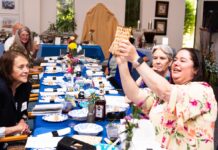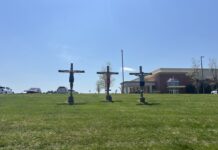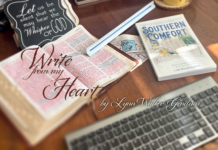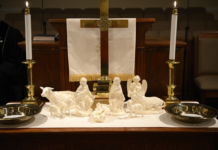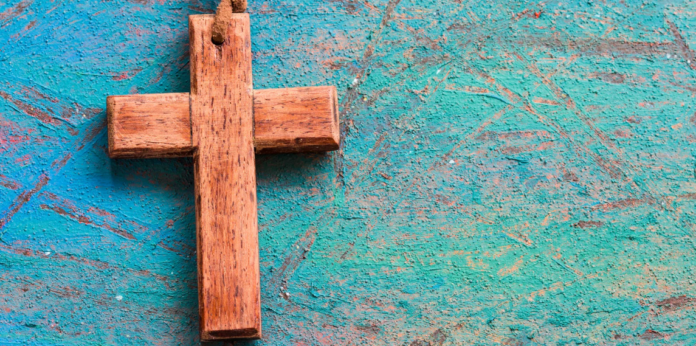
It was an ordinary plastic egg—large, blue, and likely filled with candy—tucked inside a blooming azalea, forgotten from a past Easter Egg Hunt at Nonie’s house. The hunt was part of an annual tradition, always followed by grilled hamburgers, hotdogs, baked beans, chips, and sodas, shared with friends, grandchildren, and anyone else who wanted to join.
After the Easter pictures were snapped and the crisp, starched outfits were exchanged for play clothes, the familiar call would ring out—whether aloud or just in my mind—”Let the hunt begin!”
The azalea, once modest, had since grown exponentially, wild and full, bursting with hot pink blooms. That’s when we spotted it—well, my foster son did—as we were cleaning out the flower beds and getting ready to lay down my favorite red mulch.
As he pointed it out and laughed, a wave of memory washed over me. My sister, Renie, who passed away in 2020 from a brain tumor, had spent many Easters at my house with her grandson, Alex. I could still see us—filling eggs late into the night, popping popcorn, watching movies while the kids slept nearby. Renie and I would talk about everything: the funny, the mischievous, the hard times, the beautiful moments. We’d been through so much together.
I remembered the day she brought home a few hand-carved wooden crosses she’d found up in Helen. They were small, delicate, meaningful.
“I think I’m going to put this cross in an egg,” she said. “We could make it like a special egg… a gift for whoever finds it.”
Most of our eggs were filled with candy, toys, even the occasional lottery ticket—fun surprises. But a wooden cross felt different. It felt right. I watched her wrap layer after layer of tape around that egg, making sure the cross wouldn’t fall out, even if the egg cracked open.
I wish I could remember the exact year. 2015? Maybe 2016? I’ve searched through photos on my phone, trying to place it.
He handed me the egg, grinning. “Guess we missed this one.”
I held it in my hand. The tape, now yellowed and brittle, brought her face instantly to mind—focused and smiling as she wrapped it.
“I’m going to put this cross in an egg… in an egg… in an egg…” Her voice echoed in my mind. My heart pounded. My hands grew clammy. I couldn’t breathe.
“Nonie?” he asked quietly. “You okay?”
Could an egg really sit hidden in an azalea for nearly a decade?
Carefully, I peeled back the masking tape. It tore unevenly, forcing me to pick and tug more than I wanted to. Finally, I gave the egg a gentle twist, and the two halves fell open.
Out tumbled the cross.
“A cross!” he said, his eyes wide.
“A cross…” I whispered.
I don’t know how or why things like this happen. I don’t understand the timing of loss, grief, longing, or even joy. But that cross, arriving in my hand during Holy Week—the week of suffering, of despair, of ultimate sacrifice—reminded me what Easter is all about.
Maybe this lost plastic egg was for me.
We live in a broken world—one marked by pain, loss, and longing. Every day brings headlines of heartache and stories of struggle, and many carry silent burdens no one else can see. Yet, in the midst of all this brokenness, Easter arrives like a sunrise after a long night. It speaks of hope that defies despair, of love that conquers death, and of a Savior who stepped into our shattered world to make us whole. The beauty of Easter is that it doesn’t ignore our brokenness—it meets us there, offering restoration, redemption, and the promise that even the darkest tomb can give way to light and life.
We are all like that forgotten plastic egg, tucked away and waiting to be found. And the One who gave His life for us? He knows exactly where we are. He hasn’t lost sight of us—not for a moment. All we have to do is open our hearts to Him.
The cross is real. And the Savior who carried it hasn’t forgotten any of us.


